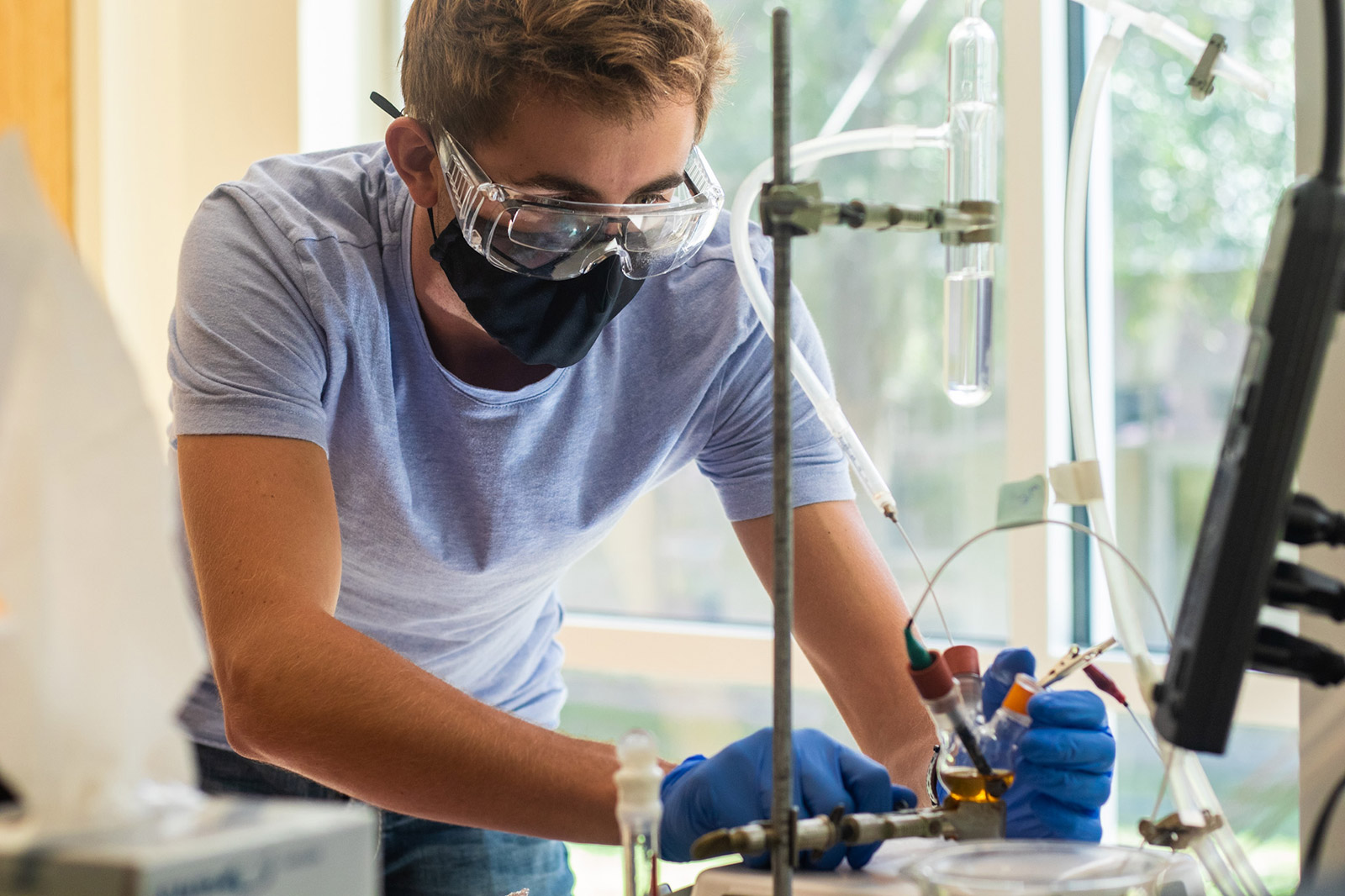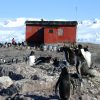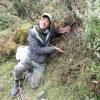
AJ Gross, a junior biochemistry student from Minnesota, has been working in Felton’s lab since his first year at Eckerd. Photo: Angelique Herring ’19
Now that space travel is moving into commercial business, long-term trips seem to be the next frontier.
Eckerd College Associate Professor of Chemistry Greg Felton, Ph.D., looked at his own research into carbon recycling and asked an important question: “Could finding a way to recycle the carbon from human respiration for food or fuel production make space travel more efficient?”
The National Aeronautics and Space Administration’s (NASA) Florida Space Grant Consortium (FSGC) is willing to bet the answer is yes.
Felton and three students have received a $25,000 FSGC grant to continue his research beginning in January 2022. The United Kingdom native and University of Leicester graduate has been working on this project since joining Eckerd in 2017, when the College awarded him a five-year $35,000 start-up fund. Additional funding will help him continue this work and expand the implications. More than a finished product, the goal of Felton’s carbon recycling research is to refine processes, train future electrochemists and display the breadth of space-related science.
Anthony “AJ” Gross, a junior biochemistry student from Princeton, Minnesota, has been working in Felton’s lab since he met the faculty member at the Chemistry Club table during a club fair his first year at Eckerd. During the summer of 2021, he was one of two students working in Felton’s lab.
“I always thought his work was about climate change, but to hear that it has space travel implications makes me even more interested,” AJ says.
Right now, in space, when people breathe out carbon dioxide, it’s exhausted out of the vessel in order to keep the oxygen levels sustainable, Felton says. It would take large-scale artificial photosynthesis to turn that carbon dioxide into a carbohydrate ready for reuse.
“It’s more a proof of concept than close to install,” Felton explains. “If we were able to achieve it, we could do it much more efficiently than plants.”
So they’ll begin by working to convert carbon dioxide into carbon monoxide and hopefully progress all the way to isolating the carbon.
In the process of working for Felton, AJ says he’s learned everything he knows about instrumentation in chemistry, including how to operate Felton’s favorite, the 300-MHz NMR spectrometer, a machine that allows researchers to view the molecules in compounds similarly to the way an MRI lets doctors see the inner workings of the human body.
“I came here to major in marine science because I wanted to do coral genetic engineering, but then I found that biochemistry might be a better route to my goal,” AJ says. “But the work I do for Dr. Felton is inorganic chemistry, and I really love working with metallic compounds. I wouldn’t know that if I hadn’t had this research opportunity.”
AJ will be joined by Jillian Campbell, Lia Perez and Maya Beck as student researchers on Felton’s grant for the 2022 calendar year.
“Three of them will receive stipends and on-campus housing in the summer, and conference travel funds to present their work,” Felton says. “It’s a good opportunity.”












